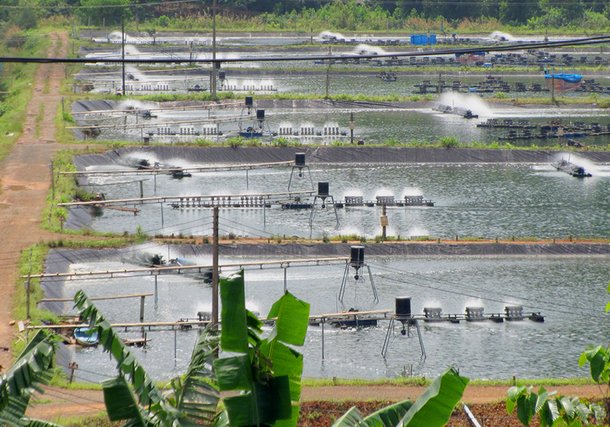Strength to survive
Challenging environments require a tailored solution. Kona Bay Strength is our solution for environments with high levels of background disease, including traditional farming systems with low levels of biosecurity. This line is specially selected for disease tolerance in open systems to TSV, WSSV, EMS-AHPND, and vibrio sp.
- Tailored solution for challenging environments
- Selected for disease tolerance to deliver on higher survival
- Tested routinely for most common pathogens
Performance data
Although growth rates are a bit lower in comparison to our other lines, the expected survivability is much higher. Kona Bay Strength is developed for tolerance to the major shrimp pathogens of concern, as well as fluctuating environmental conditions, namely salinity and temperature, in challenging conditions. Challenge trails are routinely undertaken to identify the strongest animals to improve this line’s performance over each generation.
| Hatchery | Farm | ||
|---|---|---|---|
| Mating percentage | 18 - 20% | ADG range | 0.22 - 0.30 |
| Nauplii per spawn | 200 - 300k | Stocking density | low to moderate |
| Survival to PL | 70 - 75% | Survival to harvest | 85 - 90% |
Performance data of Kona Bay Strength
Recommended conditioning/feeding
Three weeks of conditioning on high nutrition feed prior to commercial production. The use of biosecure, disinfected wet or live feeds (polychaetes/squid/mollusks) is highly recommended.
General feeding regime guidelines as a percentage of total biomass in each maturation system tank:
- Squid: 5-8% per day
- Polychaete worms: 18-24% per day
- Other mollusks (clams/oysters, if desired): 4-7% per day
- Commercial semi-moist broodstock conditioning pellets: 3% per day (should be first feeding of day)
Feedings should be alternated throughout the day (4-6 times) and monitored to feed to satiation and avoid overfeeding. The excess feed should be removed prior to the next feeding, and adjustments made accordingly. The appetite of broodstock will change based on the molt cycle as well as the increase of nutritional demand during the onset of egg/sperm development.
If available, SPF certified feeds are recommended to mitigate possible infection by pathogens carried by wild polychaetes, mollusks, and squid. If certified SPF feeds are not available, then proper disinfection using a povidone-iodine solution at 20ppm concentration for 10-15 min followed by a thorough rinse in clean water is another option.

Automatic shrimp feeding systems
